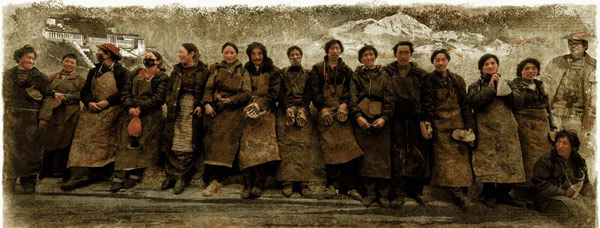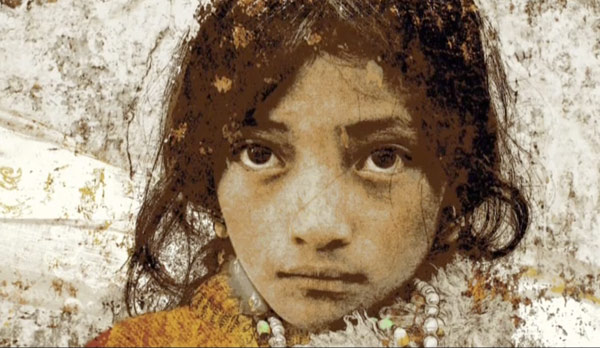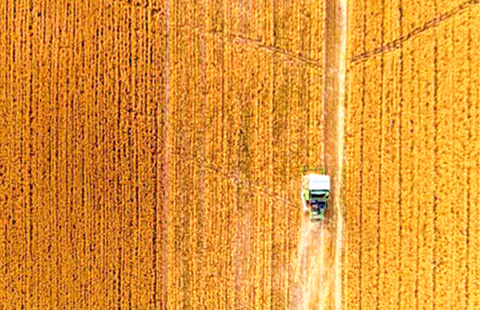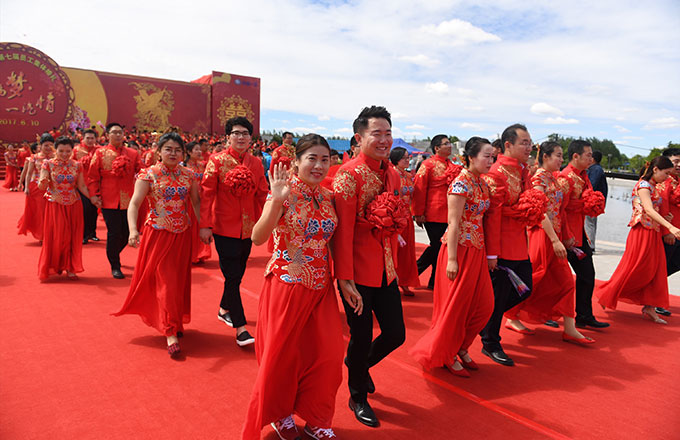Painter Li Xiaoke finds spiritual home in Tibet
 |
|
A picture of silk-screen printing entitled “Them” by Li Xiaoke |
Li, son of China's late master painter Li Keran, has visited Tibet and Tibetan areas in Qinghai, Sichuan, Gansu and Yunnan provinces 30 times since the 1980s. He said the magnificent snow-covered mountains, colorful prayer flags, and traditional architecture have all expanded his aesthetic appreciation and art career.
"I feel the sense of tranquility and peace at the bottom of my heart and develop a fresh understanding of what makes real vastness. I want to take pictures from every possible angle,” he said during an art show in Sydney, Australia, organized by China Tibet Online.
Li said what touches him most is not the grandeur and bleakness interwined in the mysterious landscape, but the Tibetan people and the way they live their lives on the rough Qinghai-Tibet Plateau.
"We speak different languages, and Tibetan people are very nice and give us butter tea,” he remembered of his visits some 25 years ago.
Li said he was deeply impressed by the simplicity, sincerity and unaffectedness of the Tibetan people, who have overwhelmingly purified his soul every time he visited Tibet. The experiences in Tibetan areas leave an iconic mark on Li's paintings.
During one recent visit, he met a group of devout Tibetan pilgrims who performed full-body prostrations for six months from their hometowns in Garze Tibetan autonomous prefecture, in Southwest China's Sichuan province, to Lhasa, Tibet. He later turned pictures of these pilgrims into a silk-screen printing entitled “Them,” also shown in Australia, to express what he calls “respect and gratitude to Tibet people.” In this painting, he also included his own image.
"A real artist also needs to be fully committed to their work and make progress through hard efforts, perhaps over many years. The Tibetan pilgrims have greatly inspired me,” he said.
"I feel I am one of them. Their persistence leads to hope.”
Besides gaining inspiration from Tibet, Li has devoted himself to promoting Tibetan artists and organize shows in Beijing and other cities via the art foundation named after his father Li Keran.
Han Shuli, president of the Tibet Art Association, said Li's efforts are a kind of cultural support to Tibet's development and also help improve the lives of Tibetan artists.
Li said Tibet reminds him of the spirit of being kind and genuine as a simple human being, which are becoming less important and distant in an increasingly sophisticated modern society.
"I regard it my duty to represent the unique Tibetan culture in my paintings.”
 |
| Artwork by Li Xiaoke |
- China issues guidelines to develop 'all-for-one' tourism demonstration zones
- Torrential rain triggers disaster in Southwest China
- Harvest time for wheat reapers in Shanxi
- Over 200 couples marry in Changchun group wedding
- Calligraphy tops other icons of Chinese culture, WeChat data shows



















